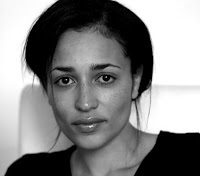I have had requests to see what the inside of the ship looked liked that we lived on in Liberia. It is an old converted rail ferry from Europe. It has 8 decks, two of which are underwater. We lived on the 3rd deck, the same level as the hospital.

We had a hairdresser on board for all the long-term crew

Laundry facilities were on a sign up basis. Everyone had one hour a week.

Of course, the hospital was the main point of the ship, as you can see one of 6 operating rooms above.

In the midship's lounge there was a Starbucks coffee bar, fully kitted out with Starbucks machines and drinks. They were donated along with the training on the machines.

Beside Starbucks was the snackbar with slurpees, popcorn, pop, and junk food.

Above is a shot of the cafe seating area. It had wireless internet and was a great place to chat at break time.

Above the coffee bar was the lounge with chairs and televisions.

There was a computer area.

The international lounge was for large meetings or lectures for everyone on the ship.

The library (one of my favourite places to hide away in).

On the top deck was a pool donated by a family on board. It was a strange sensation to swim in it while looking down at the ocean.

An outdoor area for kids to play in.

The community kitchen where anyone could cook their own food.

The midships lounge again.

The dining room where all the meals were served canteen style.

The buffet in the dining room.

Our couples cabin.

The boutique downstairs where people left unwanted things and everything was free to take. WOW!

The excercise room.

The Ship Shop where you could buy most of your basic needs.

Inside the Ship Shop.
There were all sorts of other things too...a bank, a post-office, a school, etc...
 I attended a talk this year by a dentist who had worked briefly on the Mercy Ships in Liberia. Nigel and I were invited as guests by a surgeon to the members only event that was made up of mostly medical doctors in different disciplines. I was very interested in hearing someone elses talk after Nigel and I had given two already on our experience.
I attended a talk this year by a dentist who had worked briefly on the Mercy Ships in Liberia. Nigel and I were invited as guests by a surgeon to the members only event that was made up of mostly medical doctors in different disciplines. I was very interested in hearing someone elses talk after Nigel and I had given two already on our experience.
 Well, no one can quite prepare you for suddenly having background knowledge on what would turn out to be a bit of a scam talk. I can only say that Nigel and I were incredulous as we listened to tales of patients who we had been directly involved in.
Well, no one can quite prepare you for suddenly having background knowledge on what would turn out to be a bit of a scam talk. I can only say that Nigel and I were incredulous as we listened to tales of patients who we had been directly involved in.
 One funny story he had involved the sunken ship that sat beside our ship in the harbour. He had some elaborate story about how it sunk and a dozen people were killed. They had never recovered the bodies but the ship had been dragged out to sea.
One funny story he had involved the sunken ship that sat beside our ship in the harbour. He had some elaborate story about how it sunk and a dozen people were killed. They had never recovered the bodies but the ship had been dragged out to sea.
 The photos show this very same ship, which still sits in Monrovia's dock half sunk. It was being loaded or unloaded and became unbalanced and tipped over. The ship loses the country US$3000 a day in port fees by just sitting there. There are so many sunken ships in the port that the port police have to navigate you through to your own dock. Fortunately, there were no deaths and the ship was still sitting there when we left, despite efforts to refloat it.
The photos show this very same ship, which still sits in Monrovia's dock half sunk. It was being loaded or unloaded and became unbalanced and tipped over. The ship loses the country US$3000 a day in port fees by just sitting there. There are so many sunken ships in the port that the port police have to navigate you through to your own dock. Fortunately, there were no deaths and the ship was still sitting there when we left, despite efforts to refloat it.
















































